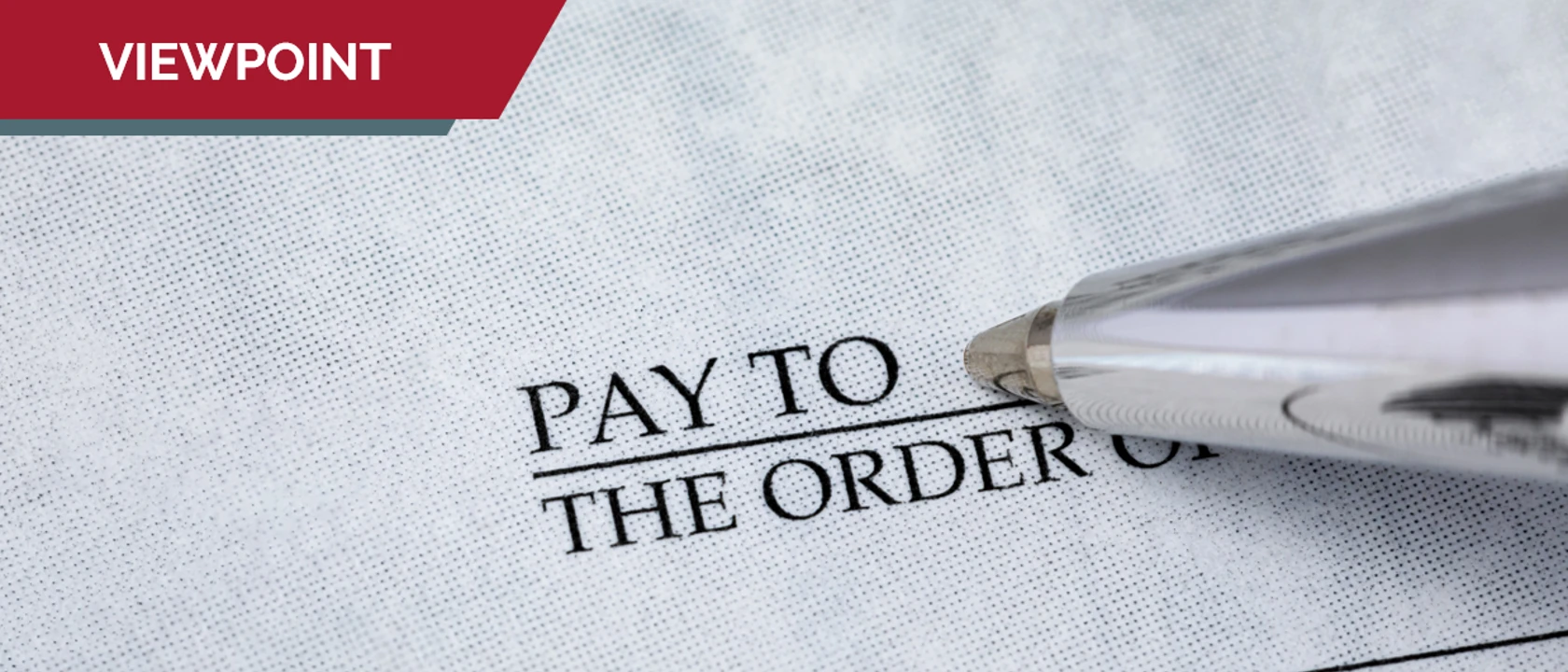The Check Is In the Mail, Maybe!

“The check is in the mail.” In my 42+ years as a banker, no telling how many times I have had that said to me. And for the overwhelming majority of those years, I could count on that check being delivered by the postal service within 2 days to my bank address. Well, like Andy and Barney sitting on the front porch after church on Sundays in Mayberry, those days are gone. Note the following check fraud statistics:
- It is estimated that check fraud losses in 2023 were nearly $21 billion.[1]
- Nearly one-third of all small businesses in the U.S. were victims of check fraud in 2023. Of those, 65% reported losses exceeding $50,000 - a significant sum of money for a small business to absorb. In the same survey, 47% of small business respondents reported that check fraud and fake checks are a “big concern.”[2]
- Check fraud increased nationwide by 385% since the pandemic.[3]
- Mail theft has skyrocketed, from fewer than 60,000 complaints in 2018 to more than 250,000 in 2023.[4]
- An average of 1,325 stolen checks were being sold daily online in the dark web groups they observed in 2021.[5]
- From March 2020 through February 2021, the USPS received 299,020 mail theft complaints, which was an increase of 161 percent compared with the same period a year earlier.[6]
- Check fraud has also increased in the past three years, nearly doubling year over year. They aim to steal personal checks, business checks, tax refund checks, and checks related to government assistance programs, such as Social Security payments and unemployment benefits. Business checks are cited as the most valuable to criminals because they are often well-funded and it may take longer for the victims to notice the fraud.[6]
Remember, every time we write a check, we are putting our names, addresses, our signature, and our account number “out there” for who knows who to intercept and use for fraudulent purposes. Thus, check theft, check washing, and check forgery is now a multi-billion dollar industry for the bad guys – even to the point where stolen account numbers and checks are being sold on the dark web. As if we don’t have enough to worry about already!
What can one do to minimize the chance of check fraud loss? The following are some simple steps that businesses and individuals can take:
- Minimize the writing and especially the mailing of checks. Virtually all USPS outside mail drop boxes have been removed but somehow checks are being intercepted through the mail system.
- Set up as many regular payments as possible on auto draft or ACH electronic payments.
- If you write a check, use a permanent gel pen if possible. The ink is much harder to “wash” by a bad guy.
- Avoid blank spaces on your checks.
- Do not put any unnecessary information on the check such as drivers license number or anything in the “For” line on the bottom of the check.
- Most importantly of all, check all your accounts daily online. Check your checks daily. Banks have 48 hours to return a fraudulent check to the bank that accepted it. Thus, make sure you pull up images of the actual checks to ensure the payee and the amount of the check have not been changed.
- For businesses, set up Positive Pay with Truxton’s Treasury Management professionals. Call your Truxton banker and they will be glad to help you with this extra level of precaution and prevention.
Suspect fraud on your account? Do this immediately- for every hour counts in possibly recovering any funds:
- Contact your bank immediately.
Report the fraudulent check to your bank. They can help stop payment, freeze your account if necessary, and guide you on the next steps. - File a police report.
Contact your local police department to file a report. This creates an official record of the fraud, which is useful for investigations and claims. - Review your accounts daily.
Continue to monitor your bank and credit card statements closely for any unauthorized transactions. Report any suspicious activity immediately. - Report suspicious activity immediately.
If your check was stolen in the mail, report it to the United States Postal Service.
As Bilbo Baggins said to Frodo in The Lord of the Rings, “It’s a dangerous business, Frodo, going out your door. You step onto the road, and if you don’t keep your feet, there’s no knowing where you might be swept off to.” The same can be said about our checks! So be careful, be diligent, and be wise. Always feel free to call us, or better yet, drop by for a visit - to see how we can help you minimize any potential check fraud losses.
[1] Nasdaq Verafin | 2024 Global Financial Crime Report
[2] Mitek 2023 Mobile Deposit Benchmark Report
[3] “Treasury Announces Enhanced Fraud Detection Process Using AI Recovers $375M in Fiscal Year 2023.” U.S. Department of the Treasury, 28 Feb. 2024, home.treasury.gov/news/press-releases/jy2134.
[4] “Amid Surging Mail Theft, Post Offices Failing to Secure Universal Keys.” CBS News, CBS Interactive, www.cbsnews.com/news/mail-theft-post-offices-fail-to-secure-universal-keys/. Accessed 31 Oct. 2024.
[5] Maimon, David; Wu, Yubao; McGuire, Michael; Stubler, Nicholas; and Qui, Zijie, “SSL/TLS Certificates and Their Prevalence on the Dark Web (First Report)” (2019). EBCS Reports. 1. https://scholarworks.gsu.edu/ebcs_reports/1
[6] “FinCEN Alert on Nationwide Surge in Mail Theft-Related Check Fraud Schemes Targeting the U.S. Mail,” Feb. 27, 2023.

